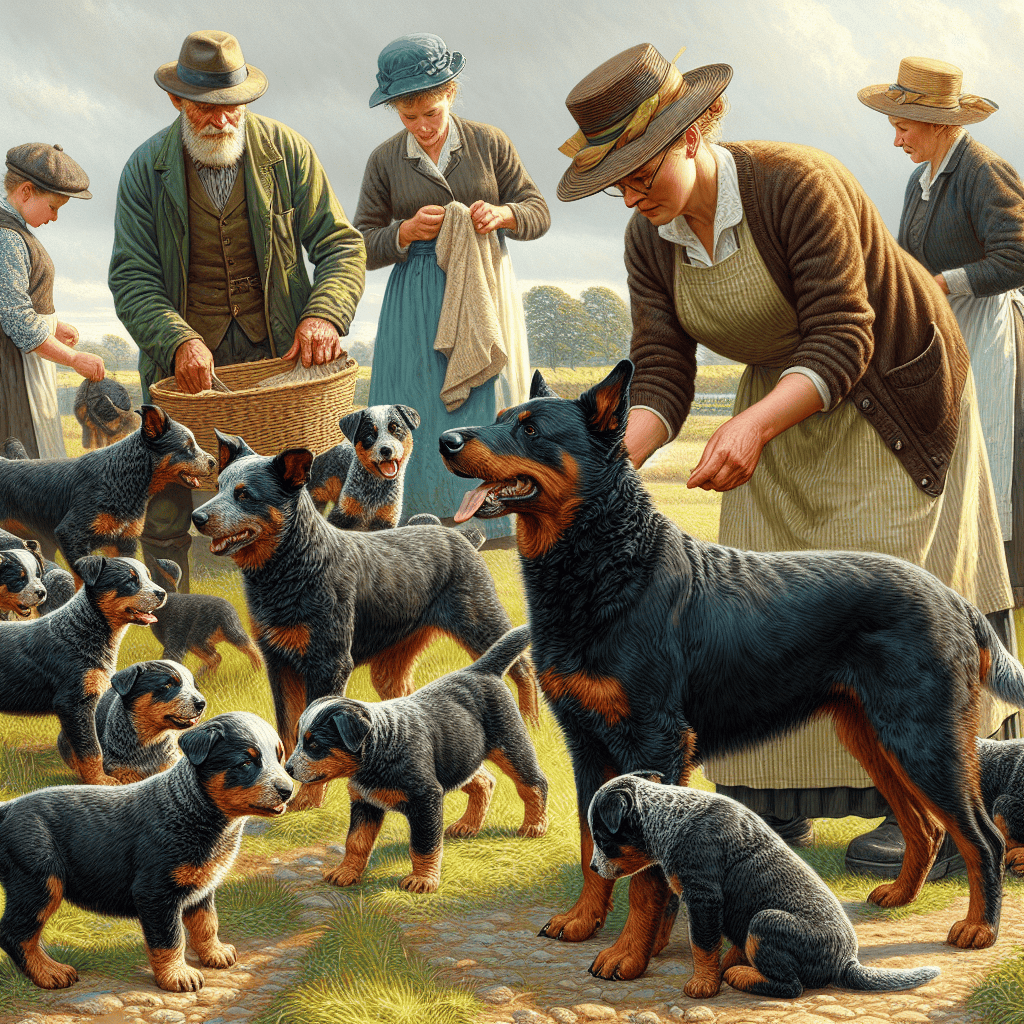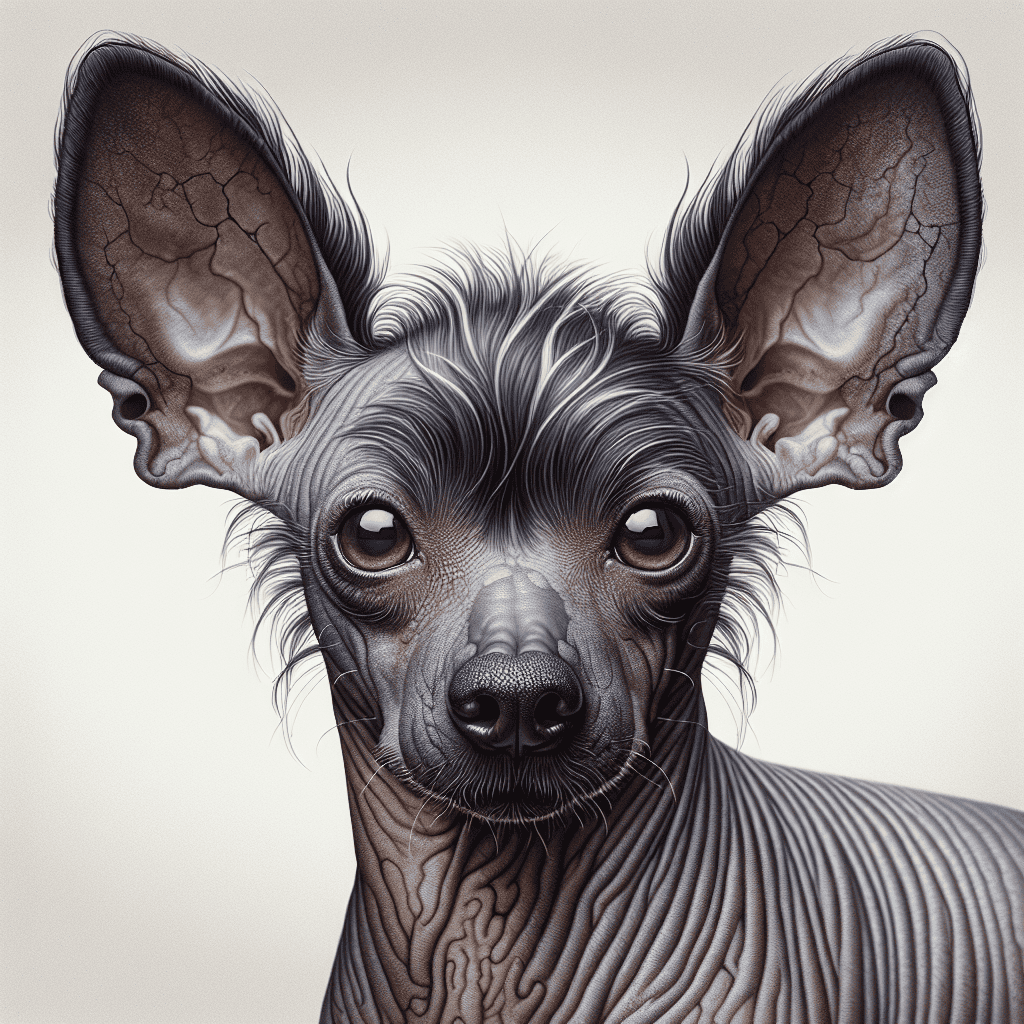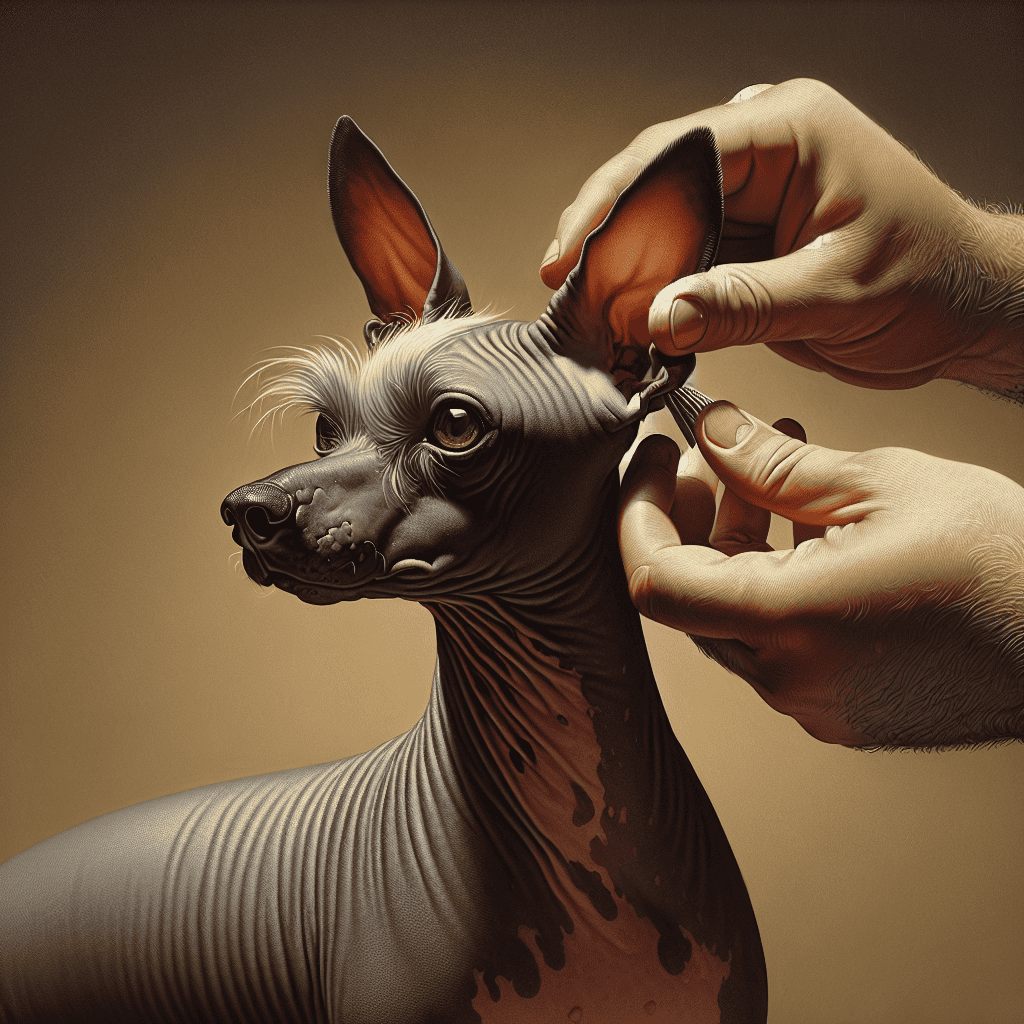Understanding Lancashire Heelers
To truly understand the Lancashire Heeler temperament, it’s important to explore their unique characteristics and delve into their history and background.
Overview of Characteristics
Lancashire Heelers are intelligent, sturdy, and courageous dogs that were originally bred as butchers’ dogs in West Lancashire, England. They have a working dog background and were primarily used to drive cattle to markets and perform ratting duties (PetMD).
These dogs are well-muscled and heavy-boned, making them resilient and less prone to injuries compared to other small dog breeds. Lancashire Heelers are known for their robust health and longevity, often living into their late teens. They require regular exercise and mental stimulation to maintain their overall well-being.
Unique History and Background
The Lancashire Heeler’s history is deeply rooted in their working heritage. Originally, they were used to drive livestock to market and were skilled at hunting rats and rabbits (DogTime). These tasks showcased their agility, intelligence, and natural herding instincts.
Over time, the role of Lancashire Heelers has evolved, and they have become beloved companions and family pets. However, their working dog instincts still shine through, making them happiest when they have a job or purpose to fulfill. Engaging them in activities such as daily walks, games, and canine sports satisfies their exercise needs and helps them maintain a happy and balanced temperament (PetMD).
Lancashire Heelers are known for their strong loyalty to their household members. They often develop a deep attachment to one favored person, making them excellent family pets with a loyal heart (Fi Blog). Their affectionate nature and devotion make them a cherished addition to any family.
By understanding the unique characteristics and history of Lancashire Heelers, dog owners can better appreciate their temperament and provide the necessary care, exercise, and training to ensure a happy and fulfilling life for these remarkable dogs. If you’re interested in acquiring a Lancashire Heeler, it’s recommended to connect with reputable Lancashire Heeler breeders or consider adoption to provide a loving home for a Lancashire Heeler in need.
Lancashire Heeler Temperament
When considering owning a Lancashire Heeler, understanding their temperament is essential. These dogs are known for their loyalty, affection, and unique characteristics that make them wonderful companions.
Loyalty and Affection
Lancashire Heelers are renowned for their strong loyalty to their household members. They form deep bonds with their families and often develop a particular attachment to one favored person. This loyalty makes them excellent family pets with a heart full of devotion (Fi Blog).
These dogs thrive on human companionship and enjoy being involved in family activities. They are affectionate and enjoy both giving and receiving love. Lancashire Heelers have a natural inclination to cuddle and will often seek physical contact with their loved ones.
Socialization and Interaction Needs
Proper socialization is important for Lancashire Heelers to ensure they grow up to be well-rounded and friendly dogs. They tend to be reserved and may be cautious around strangers. Early and consistent socialization can help them become more comfortable and confident in various situations.
Interaction with other dogs and animals is also essential to prevent any potential aggression or territorial behavior. When properly socialized, Lancashire Heelers can get along well with other pets and become friendly members of the community.
It’s worth noting that Lancashire Heelers have a natural alertness and can be protective of their families. While this makes them effective watchdogs, it’s important to provide them with proper training and socialization to ensure they understand appropriate behavior and do not become overly protective (DogTime).
To foster a strong bond with your Lancashire Heeler, spending quality time together is key. Engaging in activities that provide mental and physical stimulation, such as daily walks, games, and canine sports, will not only keep them happy but also strengthen the human-animal bond (PetMD).
By understanding and embracing the loyalty and affectionate nature of Lancashire Heelers, you can provide them with the love and care they need to thrive. Remember to prioritize socialization and interactive experiences to ensure their well-being and happiness.
Training Lancashire Heelers
When it comes to training Lancashire Heelers, their intelligence and trainability make the process enjoyable and rewarding. These dogs are known for their quick learning capabilities and attentiveness, making them receptive to training methods that are consistent and mentally stimulating.
Intelligence and Trainability
Lancashire Heelers are considered one of the smartest dog breeds, as noted on Quora. Their intelligence allows them to grasp commands and concepts quickly, making them highly trainable. This breed has a natural drive to work and please their owners, which can be harnessed during training sessions.
To make the most of their intelligence, it’s important to provide Lancashire Heelers with mental stimulation and a sense of purpose. Engaging them in activities that challenge their problem-solving skills, such as puzzle toys or obedience training, can keep their minds sharp and prevent boredom.
Effective Training Methods
When training Lancashire Heelers, positive reinforcement methods are particularly effective. These methods involve rewarding desired behaviors with treats, praise, and encouragement. Positive reinforcement creates a positive association with training, making the learning process enjoyable for both the dog and the owner.
Consistency is key when using positive reinforcement. Establishing clear and consistent rules from the beginning helps Lancashire Heelers understand what is expected of them. Short, frequent training sessions are more effective than long, sporadic ones, as they help maintain the dog’s focus and prevent them from becoming overwhelmed.
It’s also essential to vary training exercises to keep Lancashire Heelers engaged and motivated. Incorporating new commands, tricks, and games into their training routine prevents boredom and ensures continued mental development.
Remember, patience and persistence are crucial during the training process. While Lancashire Heelers are intelligent, every dog learns at its own pace. Consistent training, positive reinforcement, and a calm, patient demeanor will yield the best results.
For those seeking professional training assistance or guidance, it may be helpful to reach out to local trainers or enroll in obedience classes. These resources provide additional support and expertise in training Lancashire Heelers effectively.
By understanding the intelligence and trainability of Lancashire Heelers and utilizing positive reinforcement methods, dog owners can establish a strong bond and achieve desired training outcomes. Training not only helps shape their behavior but also provides mental stimulation, contributing to their overall well-being and happiness.
Exercise and Mental Stimulation
To keep a Lancashire Heeler happy and healthy, regular exercise and mental stimulation are essential. These energetic and intelligent dogs require both physical and mental activities to keep them engaged and prevent boredom and unwanted behaviors.
Daily Exercise Requirements
Lancashire Heelers are known for their high energy levels and stamina. They need a minimum of one hour of vigorous exercise every day to satisfy their exercise needs (Fi Blog). This exercise should include at least 30 minutes of vigorous aerobic activity, such as brisk walks, jogging, or playing fetch. Ensuring they get enough exercise is crucial for their overall well-being and to prevent the development of behavioral issues.
Mental Stimulation Activities
In addition to physical exercise, Lancashire Heelers thrive on mental stimulation activities. These intelligent dogs need mental challenges to keep their minds sharp and prevent boredom. Engaging their problem-solving skills and providing outlets for their natural instincts can help prevent destructive behaviors.
Here are some mental stimulation activities that Lancashire Heelers enjoy:
-
Puzzle toys: These toys require the dog to figure out how to access treats or toys hidden inside. They provide mental stimulation and keep the dog entertained for extended periods.
-
Training sessions: Lancashire Heelers are intelligent and eager to please, making them highly trainable. Regular training sessions not only provide mental stimulation but also strengthen the bond between the dog and owner. Positive reinforcement techniques work best with this breed.
-
Hide and seek: This game engages the dog’s sense of smell and mental agility. Hide treats or toys around the house or in the yard and encourage the dog to find them. This activity taps into their natural hunting instincts.
-
Interactive feeding toys: Instead of feeding your Lancashire Heeler from a regular bowl, use interactive feeding toys that require them to work for their food. This can include treat-dispensing toys or puzzle feeders.
By incorporating both physical exercise and mental stimulation into their daily routine, Lancashire Heelers can lead happy and fulfilled lives. Remember to choose activities that are suitable for their size and energy level. Regular exercise and mental challenges will not only keep them physically fit but also contribute to their overall well-being and happiness. For more information on the characteristics of Lancashire Heelers, check out our article on lancashire heeler characteristics.
Health Considerations
When considering the health of Lancashire Heelers, it’s important to note that they are generally healthy dogs with a lifespan of 12-15 years. However, like any breed, they may be prone to certain health conditions that owners should be aware of.
Common Health Issues
Lancashire Heelers have a relatively low incidence of health problems compared to other breeds. However, there are a few conditions that can affect them. It is important for potential owners to be aware of these conditions and take necessary precautions. Common health issues that may affect Lancashire Heelers include:
- Primary Lens Luxation (PLL): This is an inherited condition that affects the eye, causing the lens to become displaced. Regular testing and monitoring for PLL are recommended by the United States Lancashire Heeler Club (USLHC).
- Collie Eye Anomaly (CEA): CEA is another inherited eye condition that affects the retina and can cause vision problems.
- Patellar Luxation: This condition occurs when the kneecap slips out of place, leading to lameness or limping.
Regular veterinary check-ups and health screenings are essential to detect and manage these conditions early on. Responsible Lancashire Heeler breeders will conduct health tests and provide documentation to ensure that their puppies are healthy and free from these issues.
Longevity and Care Tips
Lancashire Heelers are known for their robust health and longevity. With proper care and attention, they can live well into their late teens. To ensure a healthy and happy Lancashire Heeler, consider the following care tips:
- Regular Veterinary Care: Schedule routine check-ups with a trusted veterinarian to monitor your Lancashire Heeler’s overall health and address any concerns promptly.
- Balanced Diet: Provide a well-balanced and nutritious diet tailored to your dog’s age, size, and activity level. Consult with your veterinarian to determine the best diet for your Lancashire Heeler.
- Exercise: Lancashire Heelers are energetic dogs that require regular exercise to maintain their physical and mental well-being. Daily walks, games, and canine sports can help satisfy their exercise needs.
- Grooming: Regularly groom your Lancashire Heeler to keep their coat healthy and free from mats or tangles. Brushing their teeth regularly and providing dental chews can help maintain good oral hygiene.
- Socialization: Lancashire Heelers are social dogs that enjoy the company of people of all ages and other animals. Early socialization and positive experiences with different environments, people, and animals can help them become well-rounded and confident.
By providing proper care, regular health screenings, and a loving environment, you can help ensure that your Lancashire Heeler lives a long, healthy, and happy life. Remember to consult with your veterinarian for personalized advice and guidance specific to your Lancashire Heeler’s needs.
Lancashire Heelers as Versatile Dogs
Lancashire Heelers are not only beloved companions but also excel in various performance sports and activities. Their adaptability and charming personalities make them a popular choice for dog owners seeking a versatile and active canine companion.
Performance Sports and Activities
Lancashire Heelers are incredibly versatile when it comes to performance sports and activities. They have a natural herding instinct that is very much alive, making them suitable for herding activities. Their keen intelligence and agility allow them to excel in various sports and competitions. Some of the activities where Lancashire Heelers shine include:
- Dock Diving
- Tracking
- Barn Hunt
- Herding
- Nosework
- Conformation
- Disc Dog
- Obedience
- Rally
- Fast CAT
- Agility
- Weight Pull
Engaging in these activities not only provides mental and physical stimulation for Lancashire Heelers but also strengthens the bond between the dog and its owner. Whether participating in competitive events or enjoying these sports recreationally, Lancashire Heelers are sure to impress with their skills and enthusiasm (Showsight Magazine).
Adaptability and Charming Personalities
Aside from their remarkable performance abilities, Lancashire Heelers are known for their charming personalities and adaptability. They are described as easy to get along with and possess fun-loving characters. Lancashire Heelers are not demanding of time and can fit well into the lifestyles of individuals with busy schedules. They generally get along well with other dogs and people, making them a great choice for households with multiple pets or children.
Their adaptable nature allows them to thrive in various living situations, including apartments or houses with small yards. However, it’s important to provide Lancashire Heelers with regular exercise and mental stimulation to keep them happy and content. They enjoy being part of the family and are always ready for adventures and activities that involve their loved ones (Showsight Magazine).
When considering a Lancashire Heeler as a pet, remember to prioritize their exercise and mental stimulation needs to ensure their overall well-being and happiness. Their versatility in sports and activities, combined with their charming personalities, make them a delightful addition to any dog-loving household.
















